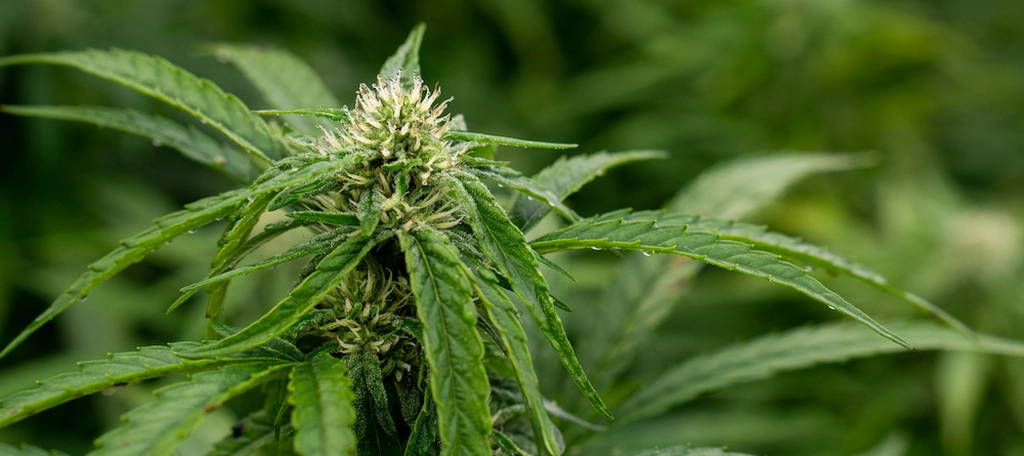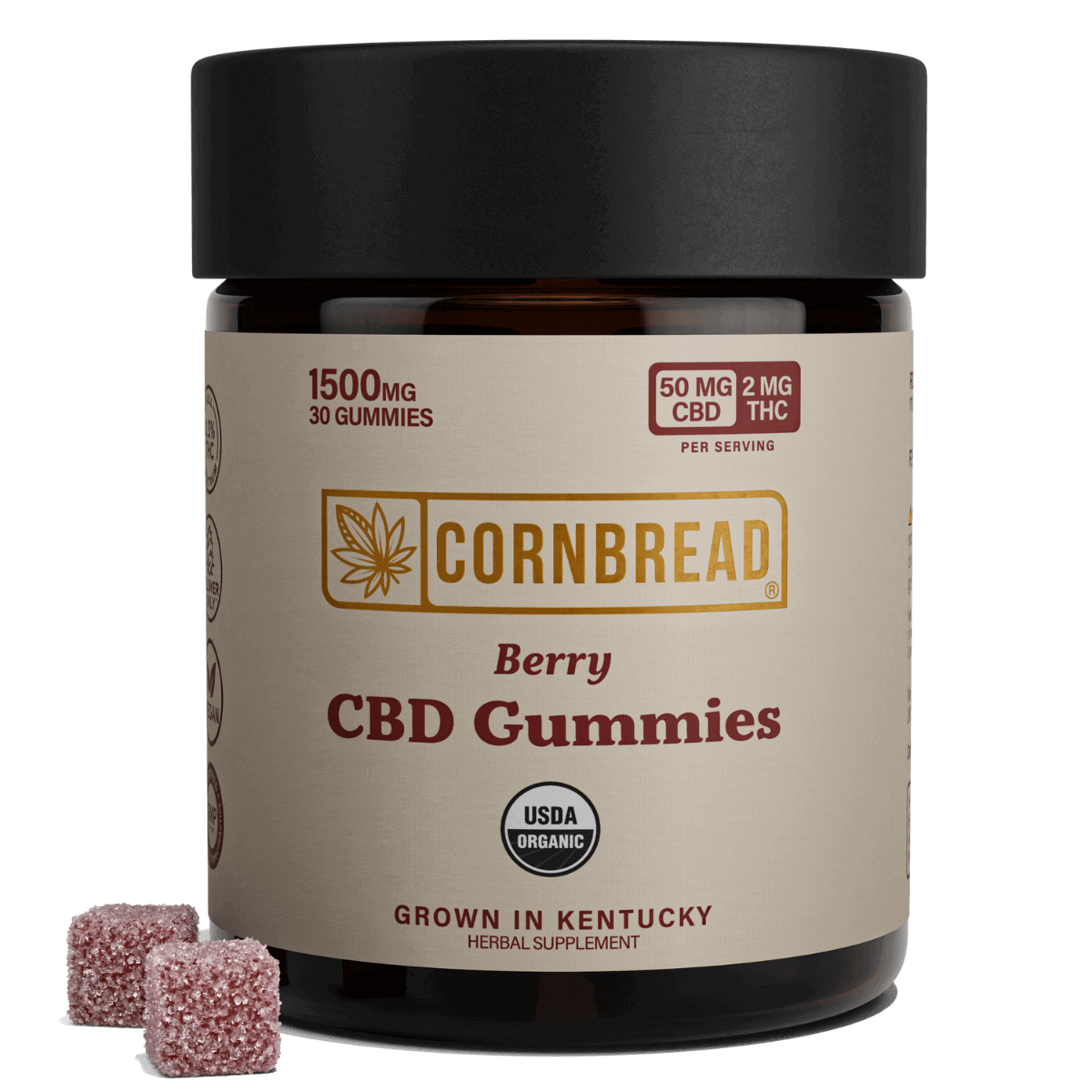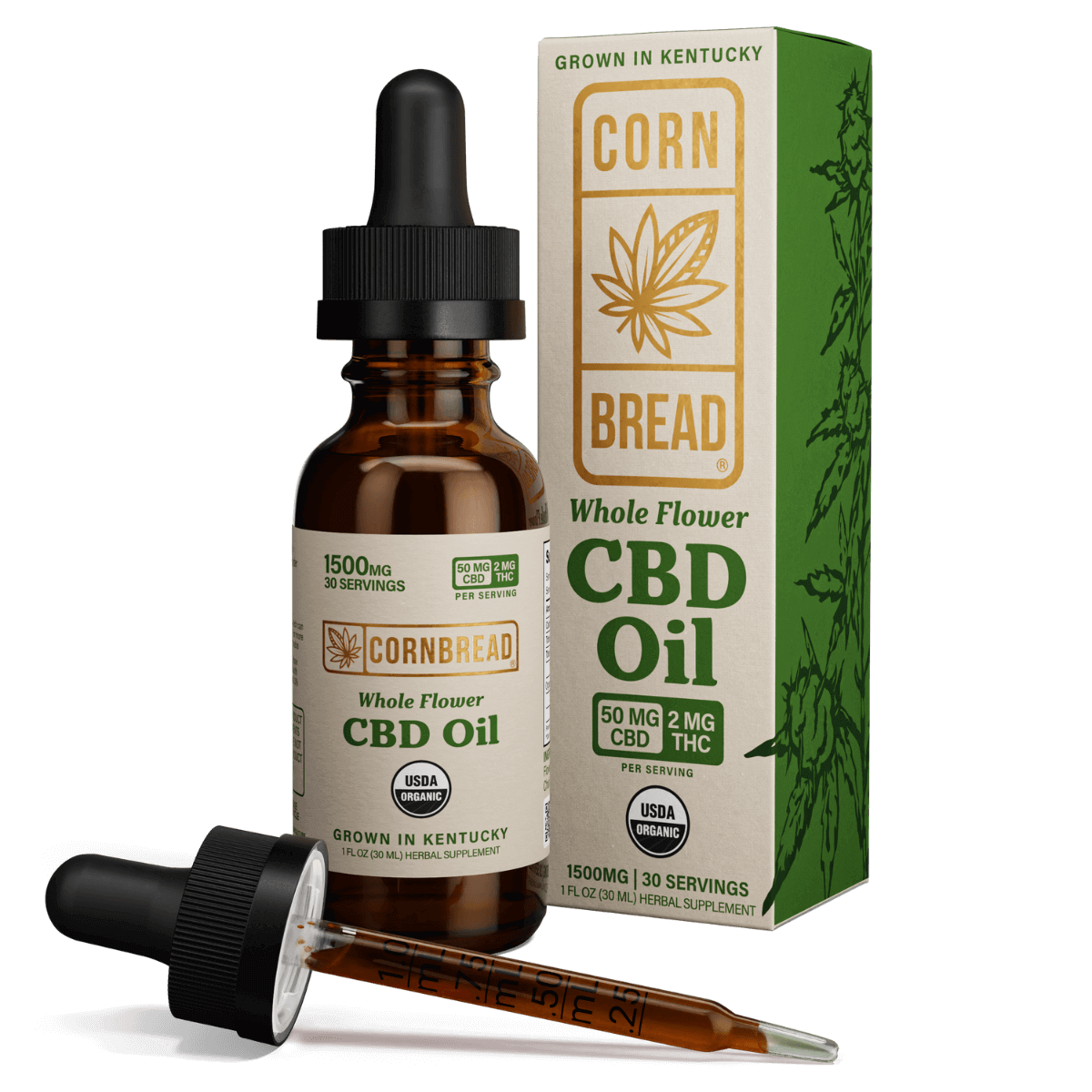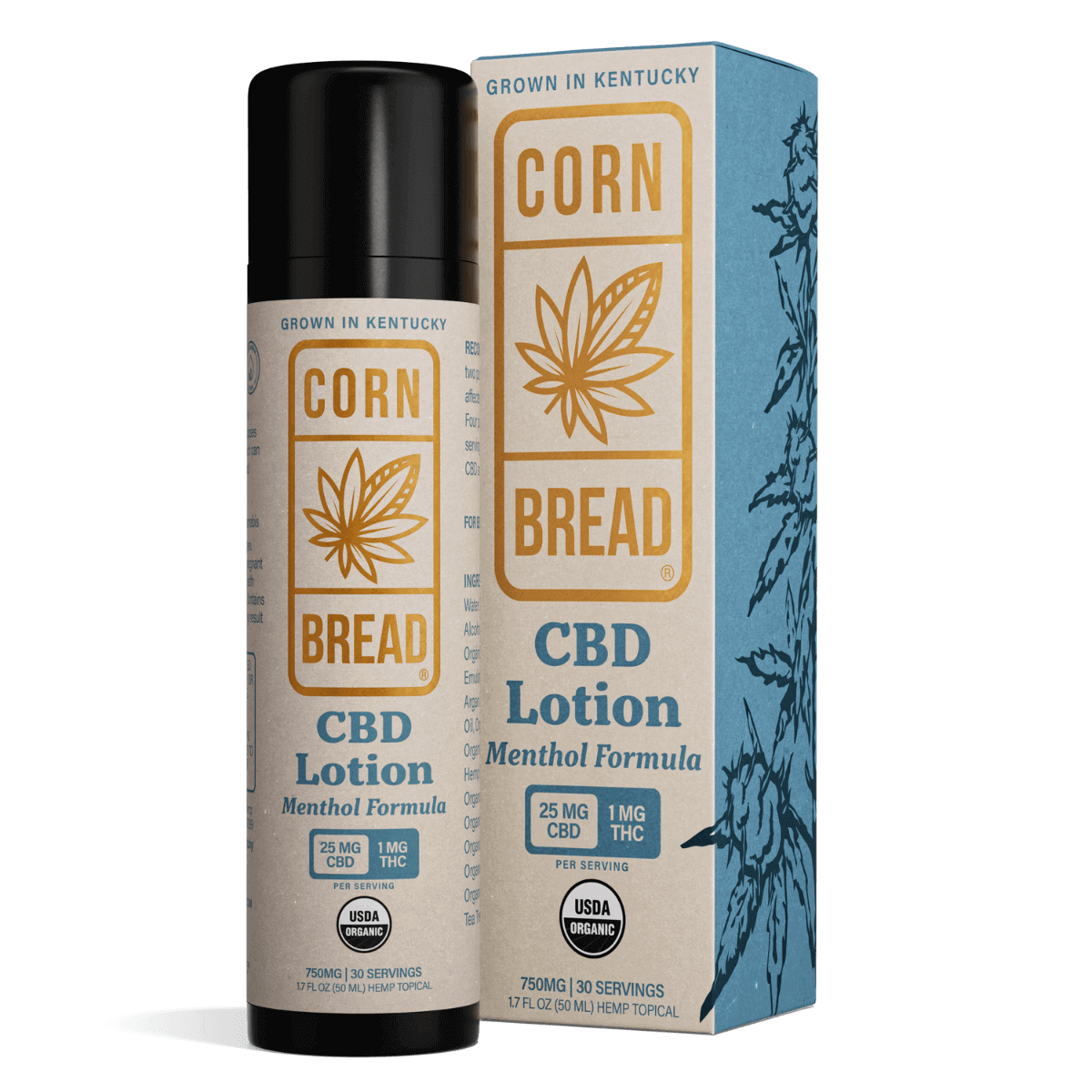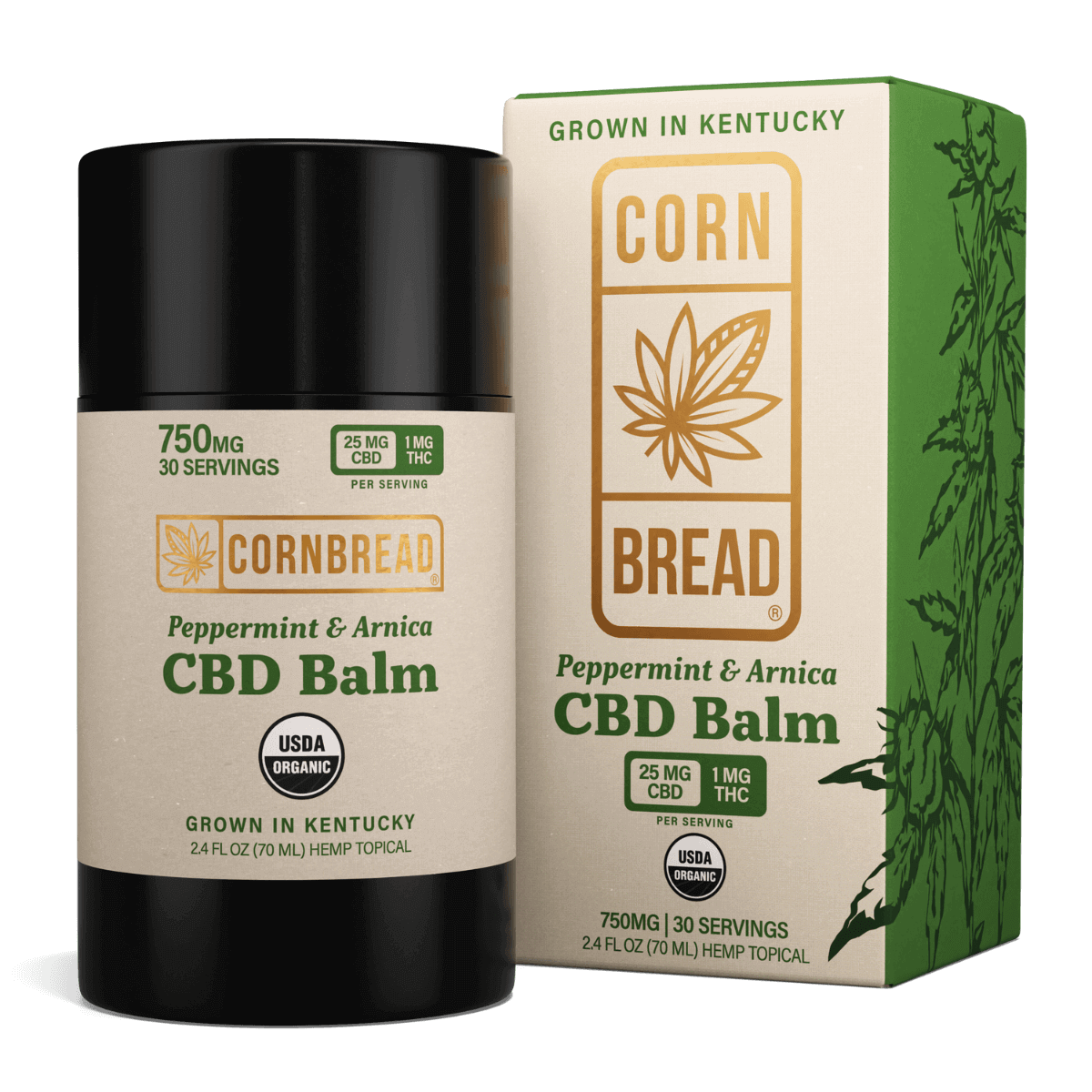Table of Contents
What is THC?
There are over 120 different cannabinoids in the cannabis plant. When experienced together, they create what’s called an “entourage effect,” a term that describes the theory that each cannabinoid’s efficacy is increased when they all work together.1 The most popular cannabinoid is delta-9 tetrahydrocannabinol, or THC. So, what is THC? THC is the cannabinoid that people are most familiar with. THC was in the marijuana at Woodstock.
Despite the fact that THC has been a part of American culture for decades, people are still asking basic questions about it. “What is THC?” is a common question, and this article will explain the science and potential wellness benefits of this most popular cannabinoid.
When Congress legalized hemp in the Farm Bill of 2018, the only cannabinoid it restricted was delta-9 THC. All other cannabinoids are now 100 percent legal under federal law, while delta-9 THC remains mostly illegal. That’s because Congress legalized hemp plants with as much as 0.3 percent delta-9 THC, which is not a lot. But it’s not zero, either. Here you can find out more about delta-9 THC and its related cannabinoids.
The Science of THC
THC, otherwise known as delta-9 THC, is the crystalline cannabinoid that is responsible for most of marijuana’s psychotropic effects. THC’s chemical structure is similar to the structure of a naturally occurring endogenous cannabinoid neurotransmitter in the brain that sends chemical messages throughout the nervous system.
Those cannabinoid neurotransmitters, called anandamide, “affect brain areas that influence pleasure, memory, thinking, concentration, movement, coordination, and sensory and time perception.”2 The term “anandamide” comes from the Sanskrit word ananda, which means "joy, bliss, delight.” Anandamide can be found in the brains of all mammals.3
Because of its similarity to anandamide, THC is able to attach itself to cannabinoid receptors on neurons in the brain and activate them, disrupting various mental and motor functions.4 That’s how THC works.
How is THC Used?
Traditionally, THC has been consumed by inhaling smoke of the burning dried flowers of the cannabis plant. In the ancient Near East, this was done by tossing compressed cannabis flowers onto hot coals inside a tent, then inhaling the smoke. Pipe smoking, as we know it today, is a relatively newer invention introduced into European culture by Native Americans in the 16th century for tobacco use.
In the late 19th century, the French invented cigarettes, also for tobacco use. Eventually pipes and cigarettes were used to smoke cannabis flowers as the primary way people ingest THC into their systems.
When hemp became legal again through the 2018 Farm Bill, the THC was capped at 0.3 percent. This hemp-derived THC is the same as the THC in full-strength marijuana, just much less of it. There is hemp-derived THC in any hemp extract labeled “full spectrum,” like all Cornbread Hemp CBD gummies.
What Are the Benefits of THC?
At least 35 states have made it legal to access high-THC cannabis for a wide range of medical conditions. The vast majority of Americans now live in states with safe access to medical marijuana, which comes from the perceived benefits of THC.
Benefits of THC use may include a sense of calm and restfulness that promotes relaxation and sleep.5,6 According to the National Institute on Drug Abuse (NIDA), “THC, acting through cannabinoid receptors, … activates the brain’s reward system, which includes regions that govern the response to healthy pleasurable behaviors such as sex and eating.”7
This is why full spectrum CBD products with a high THC level are the most popular.
What Are the Side Effects of THC?
As with most substances that bring substantial pleasure, there are side effects that could be detrimental to your health—mostly caused by overindulging.
According to the NIDA, “People who have taken large doses of the drug may experience ... hallucinations, delusions, and a loss of the sense of personal identity.”8 That’s why it is unwise to drive or operate heavy machinery while under the influence of THC.9
Another concern is rookie marijuana users overdoing it on THC edibles. This has become an issue as marijuana tourism increases in states with legal recreational marijuana, leading to increased hospital visits for people experiencing acute THC effects.
Probably the worst side effect of THC is entirely manmade: THC can trigger positive results on drug tests, even in the micro-dose allowed in full spectrum hemp products, and even if a person does not experience any of its potentially intoxicating effects.
What is Delta-8 THC?
While delta-9 THC is the most well-known of the cannabinoids, the passage of the Farm Bill caused a sudden intense interest in a lesser known but similar cannabinoid called delta-8 THC. Because the Farm Bill only restricts delta-9 THC, some companies have begun marketing products featuring delta-8 THC, which has similar effects.
Delta-8 THC exists in a legal gray area; some states outlaw it and some do not. Delta-8 THC occurs only in very small quantities in dried hemp flower, but it can be synthetically produced using either CBD or delta-9 THC. These production methods are suspect and potentially dangerous.
Delta-8 THC is chemically different from delta-9-THC by only a few atomic bonds and still offers a feeling of being high.10,11Delta-8 THC will most likely cause a positive drug test results.
Also, delta-8 THC seems to be unstable as a cannabinoid. After it is produced, it can degrade into delta-9 THC, which makes it illegal if it’s more than 0.3 percent of the finished product.
Be very skeptical of delta-8 THC products.
What is THCA?
THCA, or Tetrahydrocannabinolic acid, an inactive compound found in living cannabis plants. Picked straight from the ground and ingested, the cannabis plant will not give you the expected high of marijuana. That’s because it is full of THCA, not THC. THCA is the precursor to THC, which is produced from THCA through process of decarboxylation.12
The most common method of decarboxylation is to set fire to dried cannabis flower and inhale the smoke. Other methods to decarboxylate cannabis includes heating it in an oven or melting it in butter. Without this decarboxylation process, most of the THCA in cannabis will not convert into delta-9 THC.
What is THCV?
THCV, or Tetrahydrocannabivarin, is only found in small quantities in cannabis plants, sometimes even in undetectable amounts. Only certain rare cannabis strains show the compound in any abundance, but more are emerging. There has been less research on THCV than there is on the above-mentioned cannabinoids.
What is Hemp-Derived THC?
Hemp-derived THC refers to THC products that are sourced only from hemp plants. Hemp has more CBD than marijuana.13
According to the Farm Bill of 2018, hemp derived products are legal as long as the THC level is at 0.3 percent of dry weight. And according to the general counsel of the US Department of Agriculture, "Congress has likewise removed THC in hemp from the [Controlled Substances Act]."
THC Conclusions
More research into the beneficial effects of cannabinoids like THC on the human body needs to be done. Until more research has been done, informed CBD consumers should rely on the experts for information and only purchase trusted, vetted products.










 Log in
Log in














